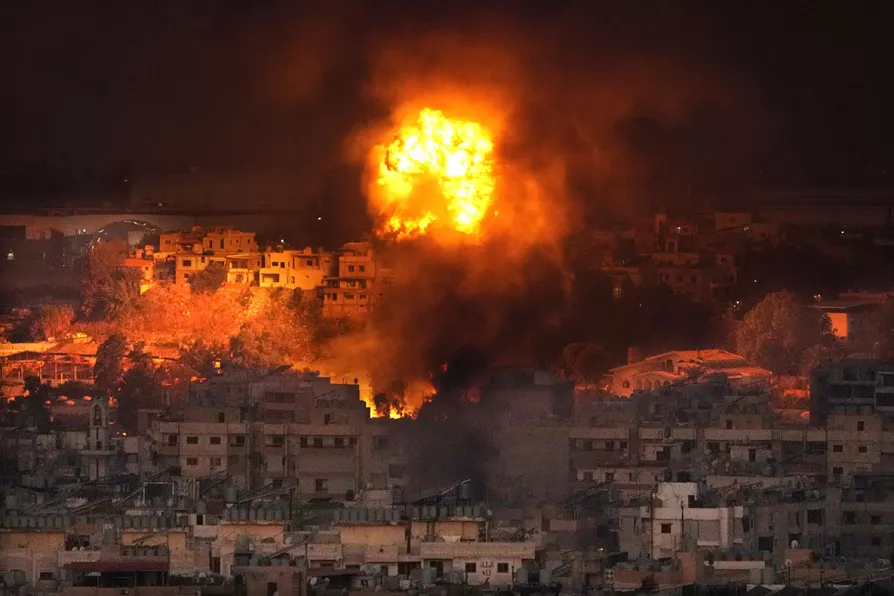One million may be forced to flee from Lebanon
Unprecedented displacement likely after massive Israeli bombardment

 Flames rise after an Israeli airstrike in the southern suburbs of Beirut, Lebanon, September 28, 2024
Flames rise after an Israeli airstrike in the southern suburbs of Beirut, Lebanon, September 28, 2024
UP TO one million people could be forced to flee Lebanon in the largest refugee movement the country has ever seen, its prime minister warned today.
More than 720 people have been killed in Lebanon since Israel’s war on its neighbours escalated on Monday.
PM Najib Mikati said: “The number of displaced people … could reach a million.”
Similar stories

Is the ceasefire a victory for Israel or for Hezbollah, and what are the consequences for Gaza? MARC VANDEPITTE assesses the terrain













